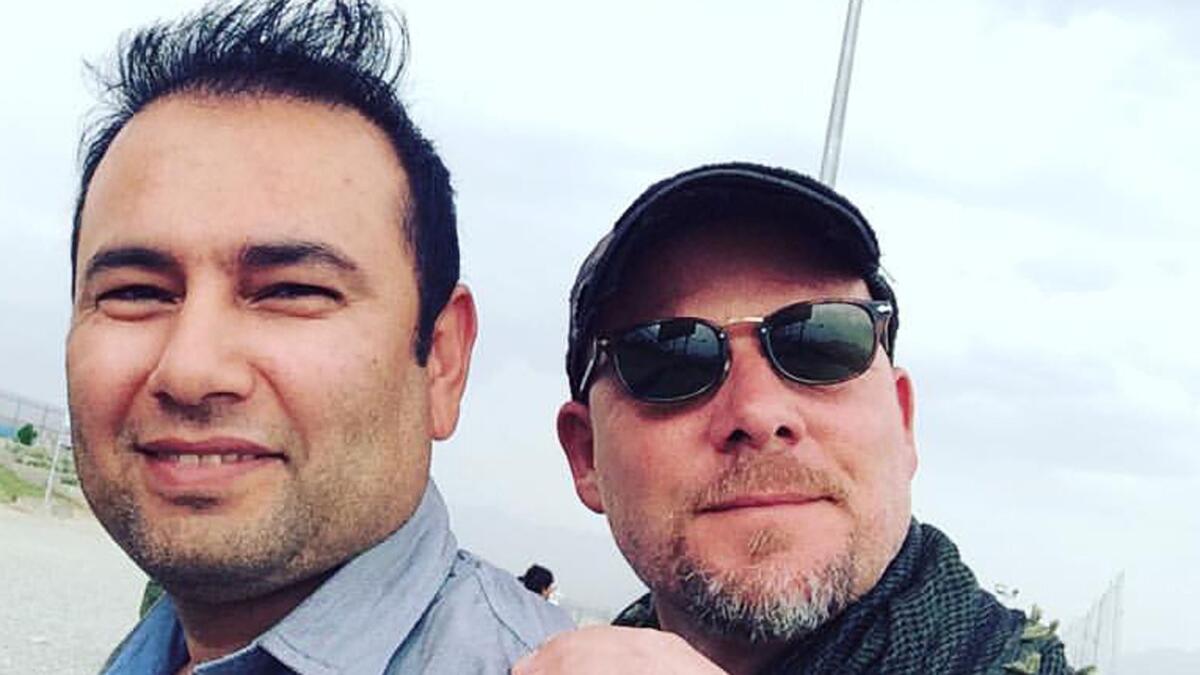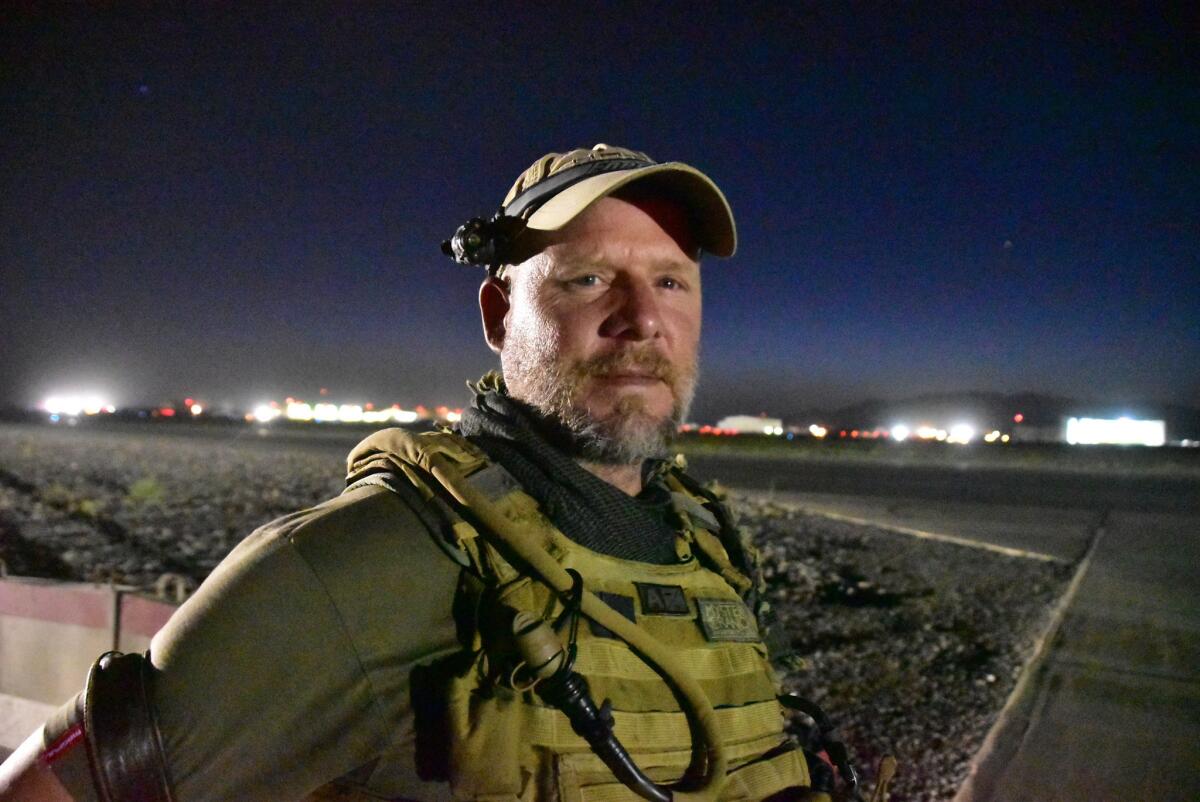NPR journalist and his translator are killed on assignment in Afghanistan

- Share via
Reporting From Washington — David Gilkey, a veteran news photographer and video editor for National Public Radio, and an Afghan translator, Zabihullah Tamanna, were killed while on assignment in southern Afghanistan on Sunday, a network spokeswoman said.
Gilkey and Tamanna were traveling with an Afghan army unit near Marjah in Helmand province when the convoy came under fire and their vehicle was struck, the network’s spokeswoman, Isabel Lara, said in a statement. Two other NPR journalists, Tom Bowman and producer Monika Evstatieva, were traveling with them and were unharmed.
U.S. Secretary of State John F. Kerry called the attack “a grim reminder of the danger that continues to face the Afghan people, the dedication of Afghan national defense and security forces to securing their country, and of the courage of intrepid journalists — and their interpreters — who are trying to convey that important story to the rest of the world.”
Gilkey had covered conflict and war in Iraq and Afghanistan since the Sept. 11, 2001, attacks and was committed to helping the public see the wars and the people caught up in them, NPR’s senior vice president of news and editorial director, Michael Oreskes, said in a statement.

“As a man and as a photojournalist, David brought out the humanity of all those around him. He let us see the world and each other through his eyes,” Oreskes said.
Tamanna was a freelancer who often worked for NPR, Lara, the spokeswoman, said in an email. Known as Zabi, he also worked as a photographer and reporter, taking pictures for China’s New China News Agency and writing for Turkey’s Anadolu News Agency. The stories he covered ranged from the inauguration of the new president to the daily attacks and drone strikes in the war-ravaged country.
Veteran correspondent Phillip Reeves, who recruited Tamanna to the network, called him “a great colleague.”
“He was a lovely man, with a great eye for a story and deep wisdom about his country,” Reeves said in a statement. “He clearly loved his family.”
Gilkey covered both national and international news for the radio network and its website and had made numerous trips to Afghanistan and Iraq, according to NPR’s website.
The things to do were amazing and the places to see were epic. But the people, the people are what made it all worth the effort.
— David Gilkey
His work has been recognized with numerous awards, including the prestigious George Polk Award and a national Emmy. The White House Photographers Assn. named Gilkey their still photographer of the year in 2011. In 2015, he became the first multimedia journalist to receive the Edward R. Murrow Award for his coverage of international breaking news, military conflicts and natural disasters.
Not counting Gilkey and Tamanna, 27 journalists have been killed in Afghanistan since 1992, according to the Committee to Protect Journalists. They include Anja Niedringhaus, a photographer for the Associated Press who was shot to death in 2014 while covering the national elections for president and provincial councils. Kathy Gannon, AP special correspondent for the region, was also in the car and was wounded in the attack.
Worldwide, nearly 1,200 journalists have been killed since 1992, according to CPJ’s website.
In addition to Iraq and Afghanistan, Gilkey covered the conflict between Israel and Hamas in Gaza, the devastating earthquake that shook Haiti in 2010, the fall of apartheid in South Africa, famine in Somalia and war in Rwanda and the Balkans.
“The things to do were amazing and the places to see were epic,” Gilkey once said of his work. “But the people, the people are what made it all worth the effort.”
Gilkey’s first journalism job was with the Boulder Daily Camera in Colorado, where he covered local assignments for the paper and overseas assignments for Knight Ridder, according to NPR. He later joined the Detroit Free Press until he began working for NPR in 2007.
ALSO
Islamic State’s Syrian capital becomes the prize in an international fight for legitimacy
Philippine president-elect urges public to kill drug dealers
Insults, tapped phones, drug allegations: It’s been a raucous lead-up to Mexico’s elections
UPDATES:
7:05 p.m.: This article was updated with more biographical information about Gilkey and Tamanna and comments from U.S. Secretary of State John Kerry.
This article was originally posted at 5:05 p.m.
More to Read
Sign up for Essential California
The most important California stories and recommendations in your inbox every morning.
You may occasionally receive promotional content from the Los Angeles Times.










